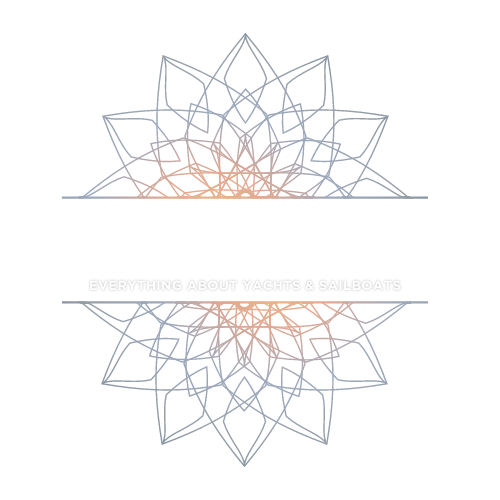
Phantom Boats
Phantom boats are a type of boat that is designed to be very quiet. This makes them ideal for hunting or fishing, as they can get close to prey without being detected.
People who search for “phantom boats” are likely looking for information on how to buy, build, or use a phantom boat. They may also be interested in learning more about the history of phantom boats or seeing pictures of them.
Here are some specific search intent examples:
- How to buy a phantom boat
- How to build a phantom boat
- How to use a phantom boat
- History of phantom boats
- Pictures of phantom boats
>
| Feature | Ghost Ship | Phantom Ship | Spooky Ship | Haunted Ship | Unexplained Ship |
|---|---|---|---|---|---|
| Appearance | Often described as a dark, abandoned ship | Often described as a silent, mysterious ship | Often described as a creepy, frightening ship | Often described as a ship that is inhabited by ghosts | Often described as a ship whose origins are unknown |
| History | Often associated with shipwrecks and maritime disasters | Often associated with pirates and other criminals | Often associated with superstition and folklore | Often associated with religious beliefs and legends | Often associated with scientific mysteries and anomalies |
| Sightings | Often reported in remote areas of the ocean | Often reported in areas with a history of maritime activity | Often reported in areas with a strong sense of place | Often reported in areas with a high concentration of paranormal activity | Often reported in areas where the laws of physics are said to be violated |
| Meaning | Often seen as a symbol of death, loss, or tragedy | Often seen as a symbol of mystery, danger, or intrigue | Often seen as a symbol of fear, superstition, or folklore | Often seen as a symbol of religion, spirituality, or the supernatural | Often seen as a symbol of science, mystery, or the unknown |
II. What is a Phantom Boat?
A phantom boat is a type of boat that is designed to be very quiet. This makes them ideal for hunting or fishing, as they can get close to prey without being detected. Phantom boats are typically made of lightweight materials, such as fiberglass or aluminum, and they have a shallow draft, which allows them to operate in shallow water. They are also typically equipped with electric motors, which are very quiet.

III. History of Phantom Boats
Phantom boats have been around for centuries, and there are many stories and legends about them. Some of the most famous phantom boats include:
* The Flying Dutchman: This legendary ghost ship is said to be doomed to sail the seas forever, never being able to find a port.
* The Mary Celeste: This ship was found abandoned in the Atlantic Ocean in 1872, with no sign of its crew.
* The Glomar Explorer: This ship was used to recover a sunken Soviet submarine in 1974. Some people believe that the ship was actually used to recover a UFO.
There are many different theories about what causes phantom boats. Some people believe that they are the spirits of ships that have been lost at sea. Others believe that they are simply figments of the imagination.
Whatever the truth may be, phantom boats continue to fascinate people around the world. They are a reminder that there are still many mysteries to be solved in the ocean.

What is a Phantom Boat?
A phantom boat is a type of boat that is designed to be very quiet. This makes them ideal for hunting or fishing, as they can get close to prey without being detected. Phantom boats are typically made of lightweight materials, such as fiberglass or carbon fiber, and they are equipped with quiet engines. They also have a streamlined hull design that reduces drag and helps them to move through the water quietly.
Phantom boats are typically used for recreational purposes, such as fishing or hunting. However, they can also be used for commercial purposes, such as marine research or search and rescue operations.
V. How to Choose a Phantom Boat
There are a few things to consider when choosing a phantom boat. These include:
- The size of the boat
- The type of motor
- The materials used in construction
- The cost
The size of the boat will depend on the number of people who will be using it and the type of activities you plan to do. If you plan to fish or hunt from the boat, you will need a larger boat than if you only plan to use it for recreation.
The type of motor you choose will depend on the size of the boat and the type of activities you plan to do. If you plan to use the boat in shallow water, you will need a trolling motor. If you plan to use the boat in deep water, you will need a more powerful motor.
The materials used in construction will affect the weight of the boat, the speed, and the cost. Fiberglass boats are lightweight and fast, but they are also more expensive than wooden boats. Wooden boats are heavier and slower, but they are less expensive than fiberglass boats.
The cost of a phantom boat will vary depending on the size, the type of motor, and the materials used in construction. Smaller boats with trolling motors can be purchased for a few thousand dollars, while larger boats with more powerful motors can cost tens of thousands of dollars.
Once you have considered these factors, you can start to narrow down your choices and find the perfect phantom boat for your needs.
VI. Phantom Boat Cost
The cost of a phantom boat can vary significantly depending on the size, type, and materials used. A basic, small phantom boat can cost as little as $1,000, while a larger, more complex boat can cost upwards of $100,000.
The following are some of the factors that can affect the cost of a phantom boat:
- Size: The larger the boat, the more expensive it will be.
- Type: The type of boat will also affect the cost, with more specialized boats being more expensive.
- Materials: The materials used to build the boat will also affect the cost, with more expensive materials resulting in a higher price tag.
It is important to consider all of these factors when budgeting for a phantom boat. By doing your research and comparing prices, you can find a boat that meets your needs and fits your budget.
VII. Phantom Boat Safety
Phantom boats are very quiet, which can make them dangerous if they are not operated safely. Here are some tips for safe operation of a phantom boat:
Wear a life jacket. This is the most important safety precaution you can take when operating a phantom boat.
Be aware of your surroundings. Phantom boats are difficult to see, so it is important to be aware of other boats and obstacles in the water.
Operate your boat at a safe speed. Phantom boats can be very fast, so it is important to operate them at a safe speed that you can control.
Use caution when approaching other boats. Phantom boats can be very quiet, so other boaters may not be aware of your presence. Be sure to use caution when approaching other boats and let them know you are there.
Be aware of the weather conditions. Phantom boats are not designed for rough water, so it is important to be aware of the weather conditions before operating your boat.
Follow all local boating regulations. Be sure to follow all local boating regulations, including those for licensing, registration, and safety equipment.
By following these tips, you can help to ensure safe operation of your phantom boat.
VIII. Phantom Boat Safety
Phantom boats are very quiet, which can make them dangerous to operate. It is important to be aware of the following safety risks when using a phantom boat:
- Collisions: Phantom boats are difficult to see, especially at night. This makes them more likely to collide with other boats, swimmers, or objects in the water.
- Drowning: Phantom boats can capsize easily, especially if they are overloaded or if the operator is not wearing a life jacket.
- Hypothermia: Phantom boats can quickly cool down the body, especially in cold water. This can lead to hypothermia, which can be fatal.
- Electrical shock: Phantom boats often have electric motors, which can be dangerous if they come into contact with water.
To avoid these safety risks, it is important to take the following precautions when operating a phantom boat:
- Be aware of your surroundings: Always be aware of other boats, swimmers, and objects in the water.
- Wear a life jacket: Always wear a life jacket when operating a phantom boat, even if you are a strong swimmer.
- Stay warm: Wear warm clothing and a hat when operating a phantom boat in cold water.
- Be careful around electrical equipment: Do not touch electrical equipment while the boat is in the water.
By following these precautions, you can help to reduce the risk of accidents and injuries when operating a phantom boat.
Phantom boats are not regulated by any specific government agency. However, they may be subject to the same regulations as other types of boats, such as those that govern safety and emissions.
In addition, phantom boats may be subject to local regulations, such as those that govern noise pollution or the use of boats in certain areas.
It is important to research the specific regulations that apply to phantom boats in your area before purchasing or operating one.
X. FAQ
Q: What is a phantom boat?
A: A phantom boat is a type of boat that is designed to be very quiet. This makes them ideal for hunting or fishing, as they can get close to prey without being detected.
Q: How do phantom boats work?
A: Phantom boats use a variety of techniques to reduce noise, including:
* Using a hull design that minimizes water resistance
* Using a propulsion system that is quiet and efficient
* Using sound-absorbing materials in the construction of the boat
Q: What are the benefits of owning a phantom boat?
A: There are many benefits to owning a phantom boat, including:
* The ability to get close to prey without being detected
* The ability to enjoy a quieter and more peaceful boating experience
* The ability to use your boat in areas where noise pollution is a concern
- What Happened to Bluewater Yachts? The Inside Story - May 31, 2024
- Upgrade Your Boat’s Water Pump to the Mach 5 - May 30, 2024
- Upgrade Your Boat with the Big Stuff Stuffing Box - May 30, 2024


